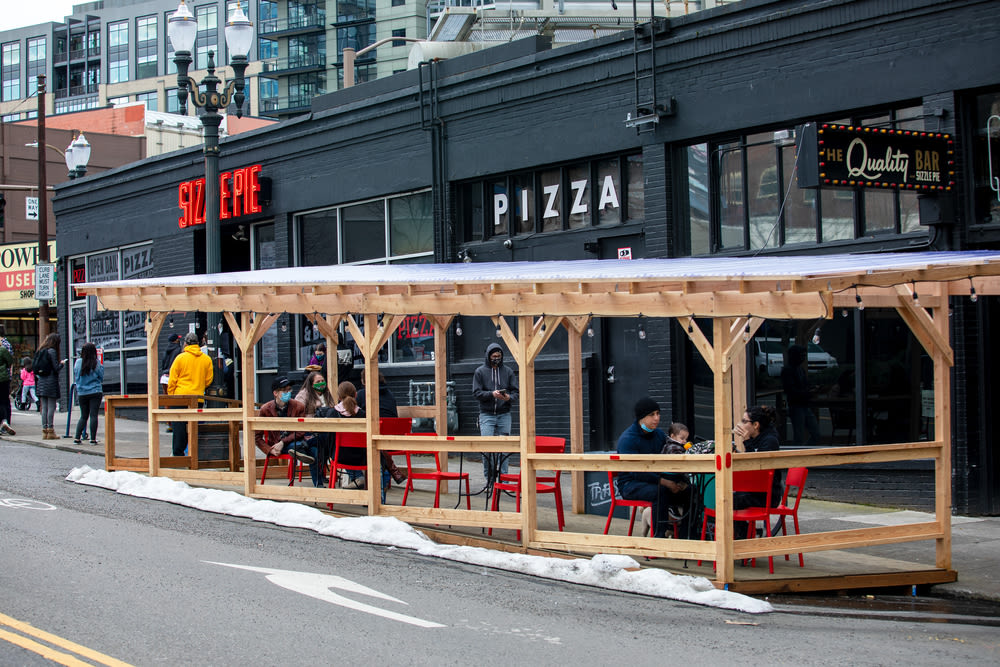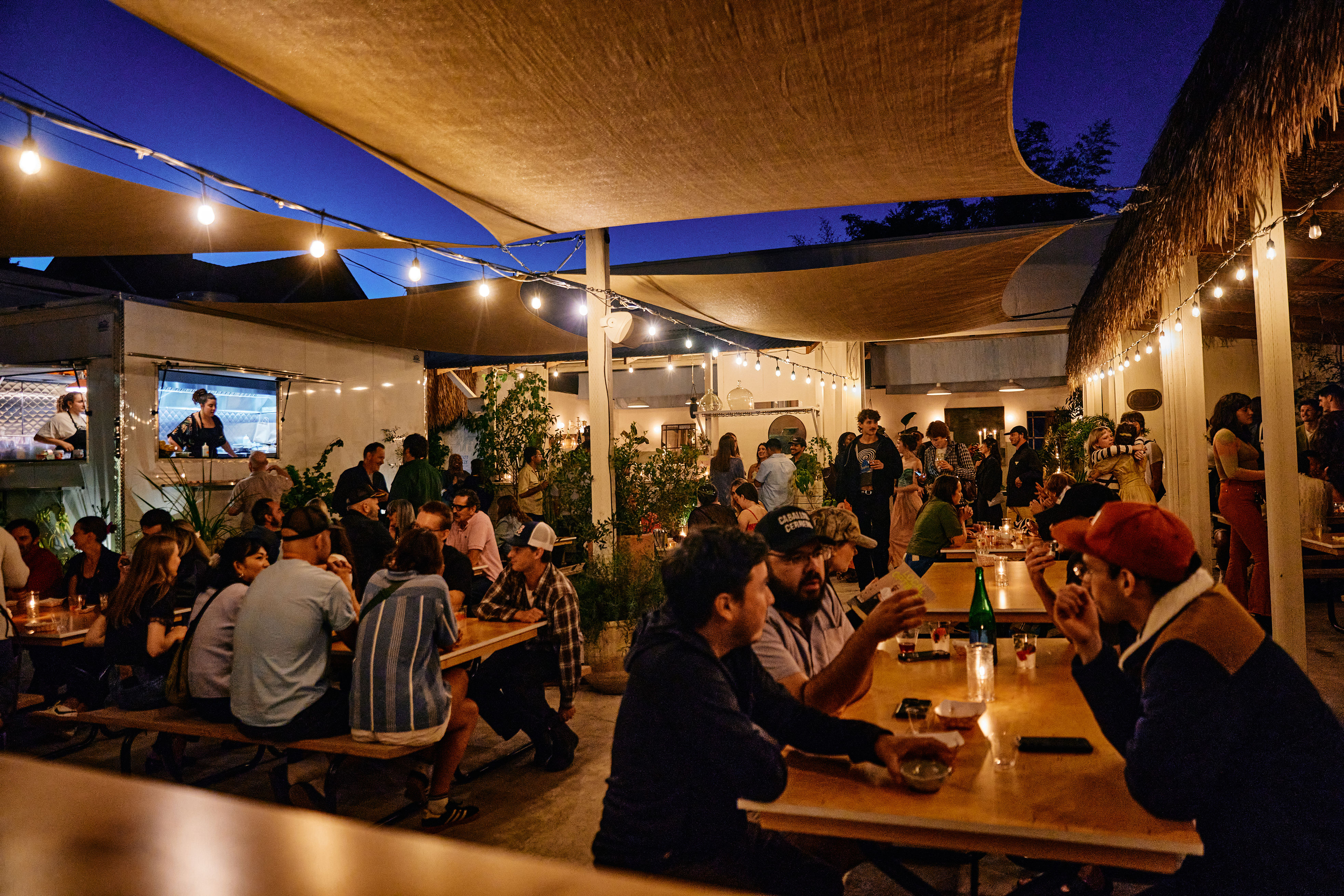Once a Pandemic Dining Novelty, Streeteries Are Here to Stay in Portland

A sidewalk cafe outside Sizzle Pie downtown
Outdoor dining—under twinkle lights or lanterns, under tents or in yurts, underneath toasty portable heaters, or posted up around firepits—saved many a local restaurateur’s bacon during two long pandemic years.
Now, city leaders are moving to make the hundreds and hundreds of so-called streeteries that have popped up in Portland a permanent feature of the urban landscape, part of a wholesale, headlong rush to adapt European café culture from coast to coast.
But a crucial deadline is looming for the still-beleaguered restaurant industry: Permits for outdoor dining expansions, which have been free, will remain that way only through August of 2022. Come September, individual restaurants will need to start paying permit fees for streetside seats, which in some cases have doubled or tripled their seating capacity. And permit costs are expected to escalate in subsequent years, as the state and federal COVID relief grants that have been supporting the program begin to sunset.
City Commissioner Jo Ann Hardesty, who oversees the Portland Bureau of Transportation, will be requesting $6 million for the department’s Healthy Businesses program during the upcoming budget cycle. Staffers said that would be enough to defray costs for the next three years. Eventually, the goal is for the permit system to break even; applications for the permits open this summer and, once granted, will be good through the end of 2023.
It’s not yet clear how much individual restauranteurs would need to pay per permit, but Eli Johnson, the owner of Dots Café, 5&Dime, and three locations of Atlas Pizza, says he expects that it might eventually total “a few thousand dollars a year, and that’s entirely reasonable.”
“I would have closed a year ago without the ability to have outdoor dining,” Johnson says. To stay afloat amid losses that topped $15,000 a month at the start of the pandemic, he sold his own home; he’s now back up to 60+ employees, though still down from the more than 100 people on his payroll in early 2020.
During the pandemic, chef Naomi Pomeroy transformed Beast, her acclaimed six-course tasting menu restaurant on NE Killingsworth at which strangers sat elbow to elbow at two long farm tables for more than two hours per meal, into Ripe Cooperative, a marketplace with a landscaped, elevated platform for sidewalk dining. She, too says the chance to expand outdoor dining saved countless businesses and jobs—though she noted that restaurants are still contending with a host of issues, from rising food prices to limited staffing pools to a customer addiction to third party delivery apps that cut deeply into profits.
PBOT’s own surveys show that the vast majority of Portlanders are enamored with streetside dining—these days, you’re hard-pressed to find a restaurant in town that doesn’t have some kind of outdoor setup.
But there are costs involved too, says PBOT Director Chris Warner. The most tangible of those is the lost parking revenue when tables and chairs replace parking meters. (PBOT is almost fully funded by parking meter revenue and gas taxes). And the department says there are “many” businesses that aren’t following rules around accessibility and safety. That's hard on those with mobility issues who cannot easily navigate a sidewalk overtaken by bistro tables serving $40 entrées and $14 cocktails, and on emergency vehicles trying to get to those in need. Access to public transit can also be blocked, as can loading zones, a problem for nearby non-food businesses.
As a result, some restaurants may find that their current structures don’t comply with regulations and they’ll need to renovate or remove them, PBOT is warning.
In other, more compact cities like New York, where residents typically live above ground-floor restaurant space, there’s been an increasing din over noise, trash, and rodent complaints associated with outdoor dining. Warner says so far, PBOT has fielded comparatively few such complaints, but that part of the requested $6 million budget is earmarked for continued inspections and enforcement of litter removal, plus making sure that electrical and heat elements don’t pose any fire hazards.
For his part, Johnson says he’ll happily comply if doing so means that his restaurants can stay open in an industry which famously has very high turnover. Dots, a classic Portland dive bar that also serves a mean brunch, is still only doing 50 percent of the business it did pre-pandemic, he says, but “if we can keep our outdoor capacity, I can see another five or ten years, easy.”




